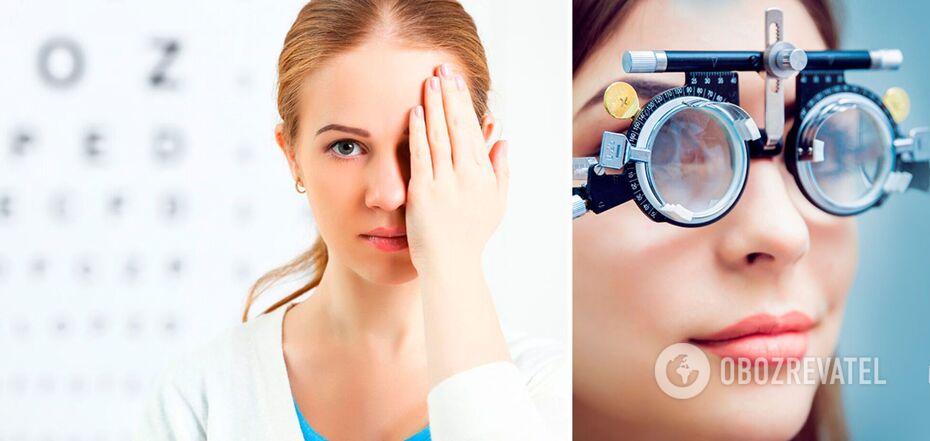Society
Doctors tell you what you need to know about eye drops
Vision is one of the most important human senses, without which it is impossible to imagine a quality and full life. Therefore, you should start taking care of your eyes when you are young, not when their health is at risk. Proper diet, vitamins, workplace organization, and preventive exercises are the key to preserving your eyesight.
Unfortunately, in the case of eye disease, following the usual rules is not enough and have to turn to medication, such as eye drops. OBOZREVATEL analyzed the available information and told what they help and how to use them correctly.
Ophthalmic drops usually contain saline as the main component, but depending on their purpose, medications may be added.
When may eye drops be needed?
In medical practice, eye drops are the first remedy for correcting visual impairment. According to WebMd, they can not only moisten dry eyes or contact lenses, but also support a lazy eye or delay the development of glaucoma, counteract allergic manifestations or fight infection.
Description:
Vision is man's most important sense organ
Source:
pixabay.com
Alt:
If you work a lot on the computer or are in a dry room, the lining of your eye may dry out and cause unpleasant symptoms (burning, pain, redness, discharge from the eye, vision changes). Similar things can happen when you use contact lenses all the time. You should not tolerate painful sensations, contact your doctor to prescribe eye drops to moisten your eyes or lenses and follow their recommendations.
Prolonged use of contact lenses when swimming in water or without timely change of solutions and cases can lead to bacterial and parasitic eye infections. You may be prescribed antibacterial drops to relieve the condition, and if complications develop, you may need vitamin-biotic medications or even surgery. If you feel your eyes are infected, remove your lenses immediately and visit your ophthalmologist for timely and effective treatment.
Description:
Contact lenses require proper storage and care
Source:
pixabay.com
Alt:
Often your eyes may react to the presence of an allergen in the environment or in your diet. In this case, you may experience lacrimation, itching, redness, watery discharge, etc. Over-the-counter antihistamine drops, antiedematous agents or mast cell stabilizers are recommended to relieve the symptoms. If a severe or chronic condition develops, corticosteroids drops are used, but they are sold only by prescription and are prescribed for a short time.
Eye drops are good for conjunctivitis, an irritation of the clear membrane that lines the eyelids and covers the eyes. If the inflammation is caused by a bacterial infection, the doctor will prescribe remedies with an antibiotic, otherwise anti-inflammatory eye drops.
With increased pressure inside the eye, a serious disease develops - glaucoma. If it is not treated in time, it leads to damage to the optic nerve and even loss of vision. In the early stage, eye drops can help reduce the amount of fluid produced by the eyes and improve its outflow. It should be noted that people with glaucoma should not use vasoconstrictor drops because they affect blood vessels and increase eye pressure.
Description:
Eye diseases sometimes need surgery
Source:
pixabay.com
Alt:
Eye ailments can be serious enough to require surgery. Drops are also useful after the procedure. For example, after corneal transplant surgery, they help with healing and prevent donor tissue rejection.
What is the right way to use eye drops?
Any treatment, even prophylactic, should be coordinated with a specialist, because the independent use of drugs can be not only useless, but also have negative consequences.
In order to achieve the maximum therapeutic effect, GrinEyeCare specialists advise to follow a few tips when using drops:
All products must be sterile and stored according to instructions;
Always wash your hands before using the drops;
Do not allow the applicator to touch your eye directly;
Remove contact lenses before using the drops if your optometrist has advised you not to leave them in;
shake the bottle of drops before using them;
Tilt your head to the side and try to get it in the corner of your eye, then hold your head still and blink several times;
if you are given several types of drops, take a break between each type for at least 5-10 minutes
Do not increase the dosage prescribed by your doctor. As a rule, your eye cannot hold more than one drop, and the rest of the drug will just drip down your cheek;
do not skip your appointments;
don't hesitate to tell your doctor how you are feeling and ask questions.
The health of our eyes, as well as the body as a whole, is our personal responsibility, since they are exposed to negative environmental influences on a daily basis. As you can see, eye drops can solve many vision problems, but you should not self-medicate. It is better to visit an ophthalmologist in time for a complete examination and to make sure that the medication will be effective and beneficial.
Previously OBOZREVATEL told about an unexpected effect of the treatment of eye disease.
Description:
Obozrevatel team address.
Source: Alt:



























